Search
Search Results
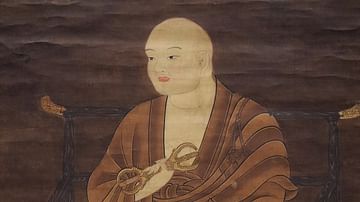
Definition
Kukai
Kukai or Kobo Daishi (774-835 CE) was a scholar, poet, and monk who founded Shingon Buddhism in Japan. The monk became the country's most important Buddhist saint and has been credited with all manner of minor miracles. Noted as a gifted...
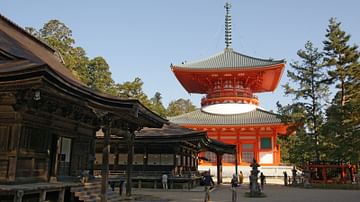
Definition
Mount Koya
Mount Koya (aka Koyasan), located in the Wakayama Prefecture, south of Osaka, Japan, is the site of a temple complex founded in 819 CE by the scholar monk Kukai as the headquarters for Shingon Buddhism. There are temples and sacred buildings...

Definition
To-ji
The To-ji Shingon Buddhist temple complex is located in Kyoto, Japan. Founded in 796 CE, its five-storey wooden pagoda is the largest in Japan, a symbol of the city, and listed as a National Treasure. The complex includes other examples of...
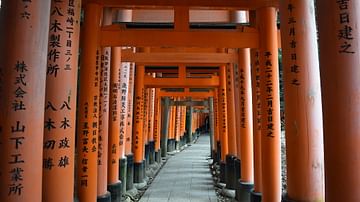
Definition
Inari
Inari is the Shinto god of rice, the protector of food, and bringer of prosperity. He has over 40,000 shrines dedicated to him large and small across Japan, the oldest and most important of which is the Fushimi Inari Shrine near Kyoto with...
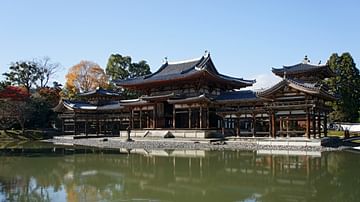
Definition
Heian Period
The Heian Period of Japanese history covers 794 to 1185 CE and saw a great flourishing in Japanese culture from literature to paintings. Government and its administration came to be dominated by the Fujiwara clan who eventually were challenged...
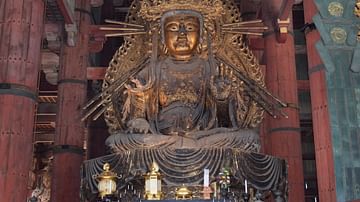
Article
Buddhism in Ancient Japan
Buddhism was introduced to ancient Japan via Korea in the 6th century CE with various sects following in subsequent centuries via China. It was readily accepted by both the elite and ordinary populace because it confirmed the political and...
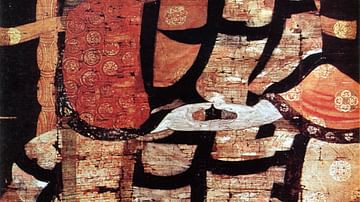
Definition
Saichō
Saichō, also known as Dengyo Daishi (767-822 CE), was a monk and scholar who founded the Buddhist Tendai Sect in Japan. Based on the teachings of the Chinese Tiantai Sect, Saichō's simplified and inclusive version of Buddhism grew in popularity...
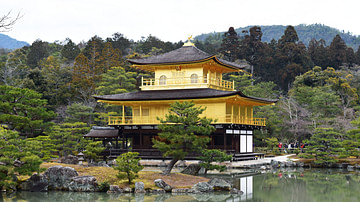
Definition
Kinkakuji
Kinkakuji Temple in Kyoto, Japan, more formally referred to as Rokuon-ji or 'Deer Garden Temple' and otherwise known as 'The Temple of the Golden Pavilion', was first built in 1397 CE. Originally the retirement residence of the shogun Ashikaga...
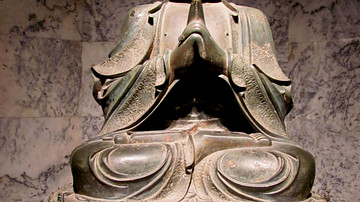
Definition
Esoteric Buddhism
Esoteric Buddhism is the mystical interpretation and practice of the belief system founded by the Buddha (known as Sakyamuni Buddha, l. c. 563 - c. 483 BCE). It is known by several names and is characterized by a personal relationship with...
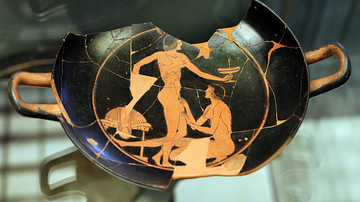
Article
LGBTQ+ in the Ancient World
In the cultures of the ancient world, there was no need for designations such as LGBTQ+ because there was no difference noted between what is now defined as "homosexual" and "heterosexual" relationships. There was no "us" and "them" dichotomy...